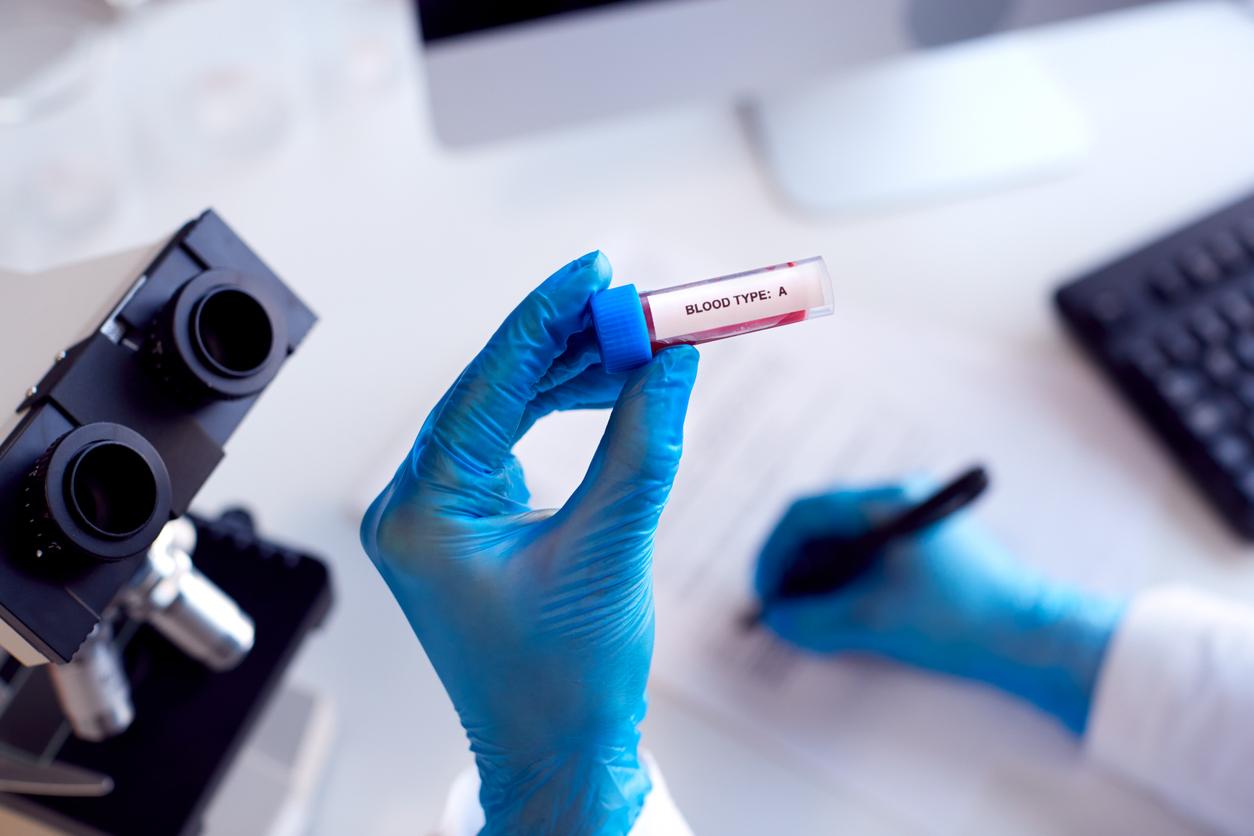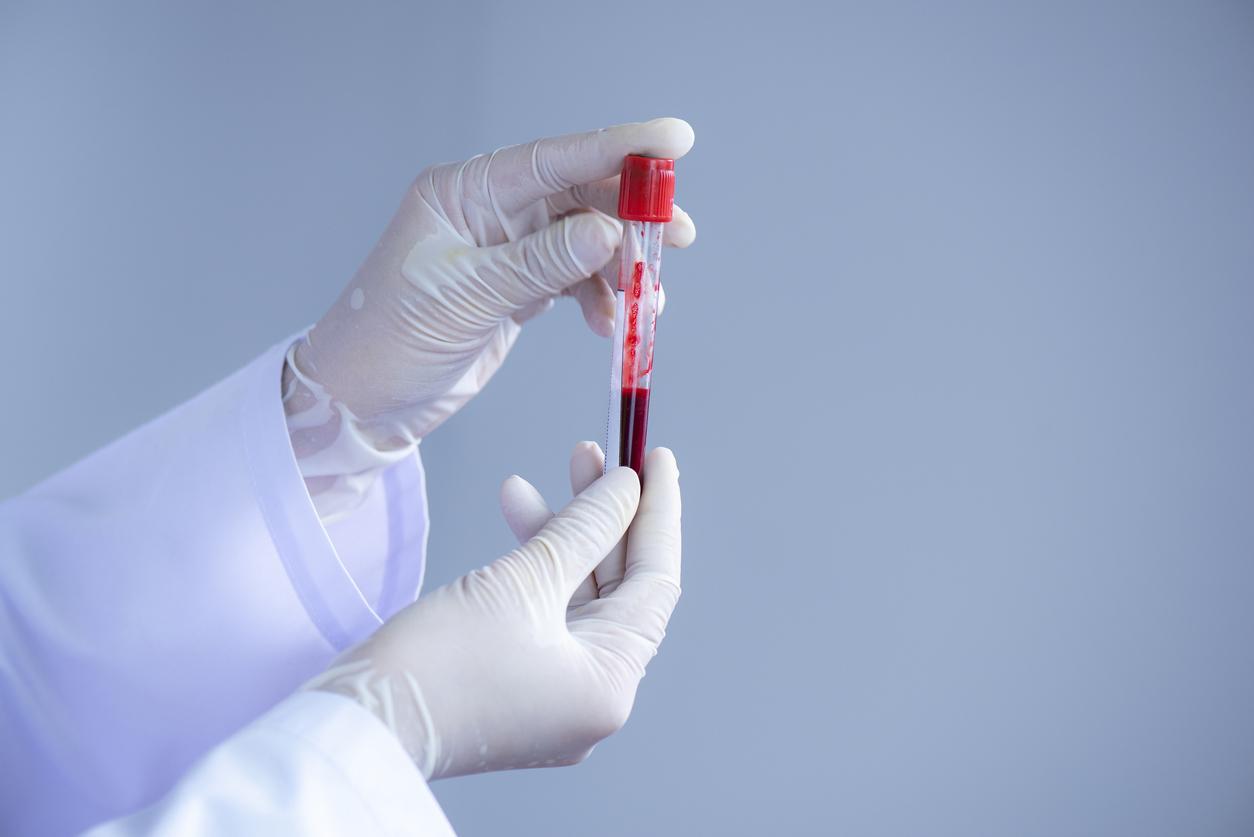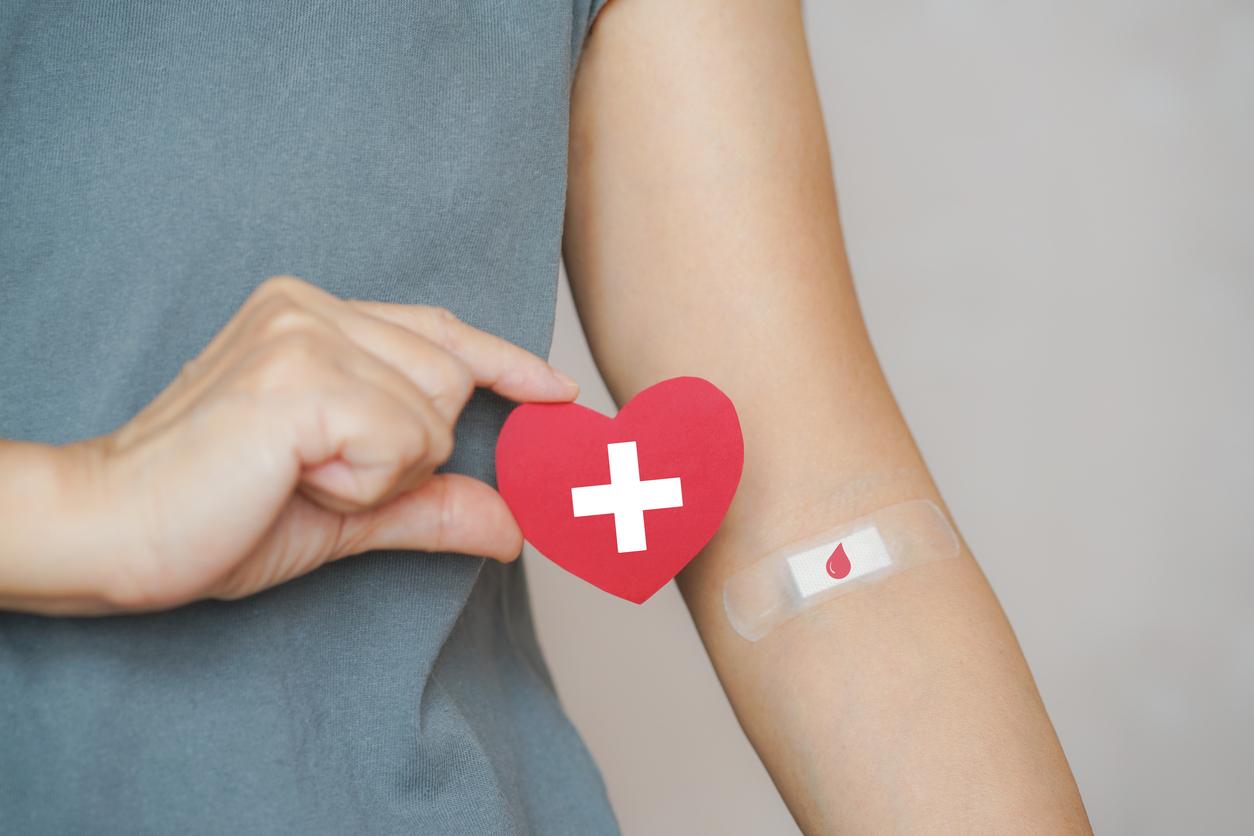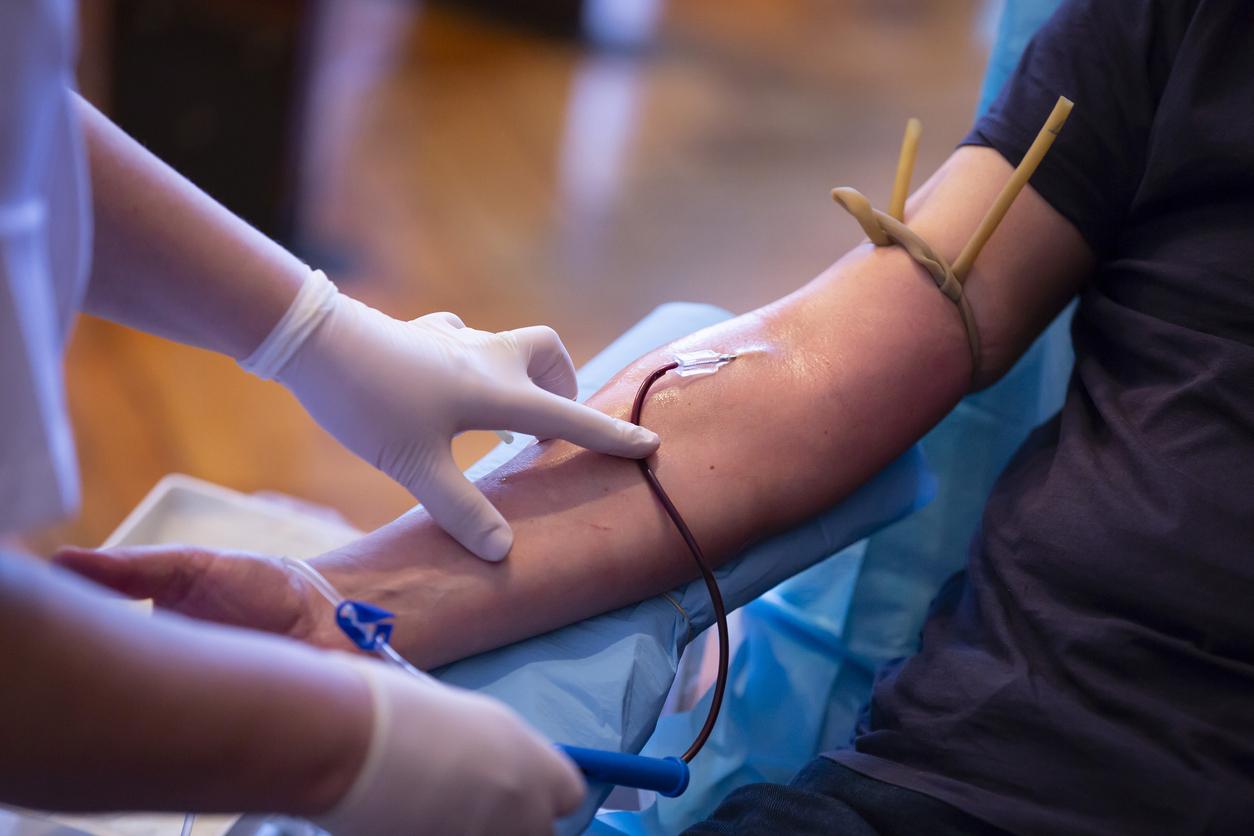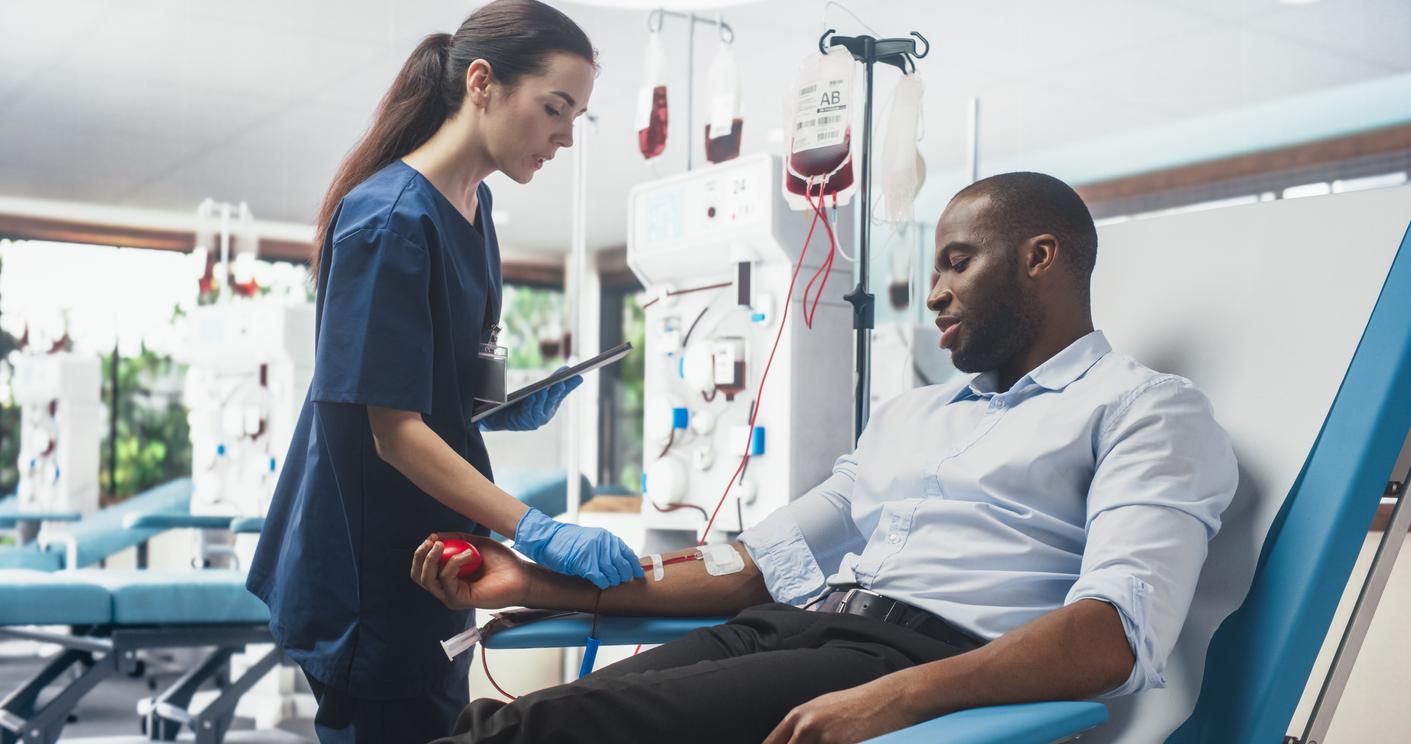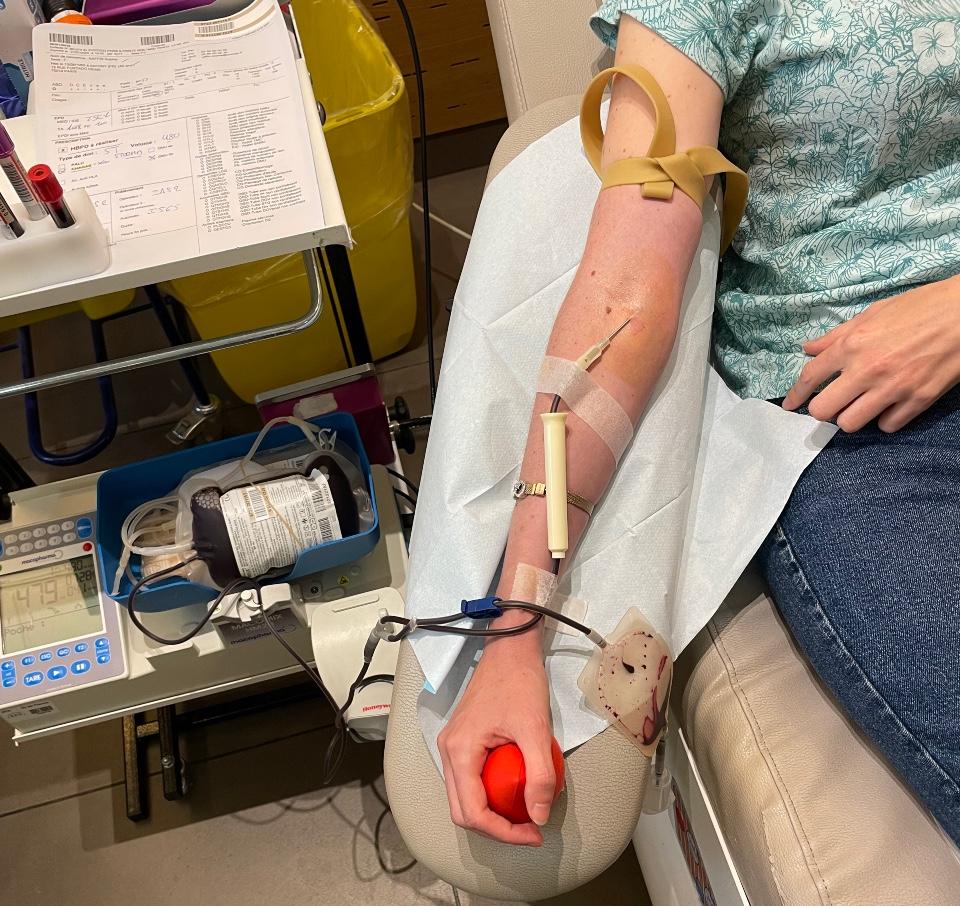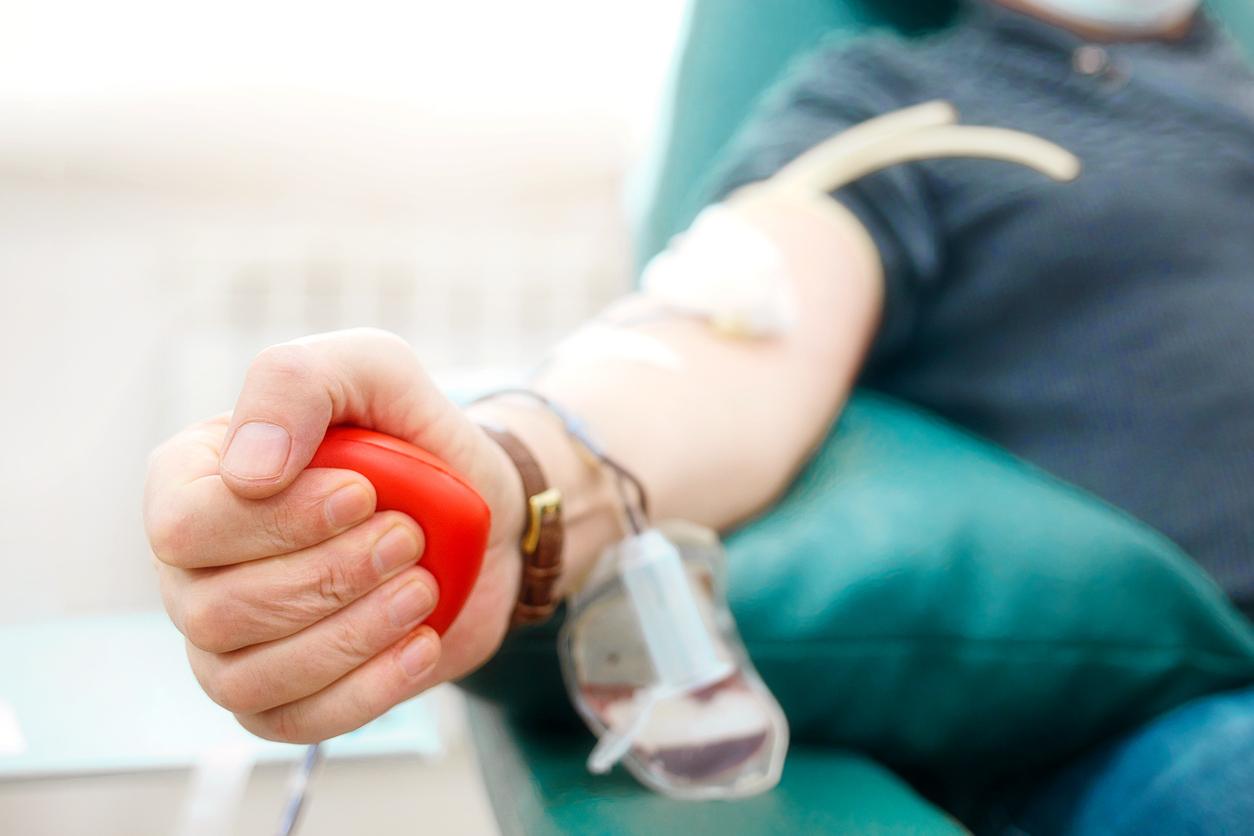Since Monday, November 15 and until November 21, the French Blood Establishment (EFS) is launching its first “rare blood awareness week”, which would concern up to 700,000 people in France. Maybe you are one of them.

- In France, it is estimated that 700,000 people are carriers of one of the 250 rare blood groups.
- There is an urgent need to diversify the genetic profile of blood donors in order to be able to find new carriers of rare blood.
Blood groups A, B, AB and O, positive or negative rhesus… No doubt you are familiar with this traditional classification, which corresponds to 98% of transfusion needs. But do you know that these blood groups are not the only ones and that some remain very rare?
It is to draw the attention of the general public to these rare bloods that theFrench blood establishment (EFS) has just launched its first awareness week. Its objective: to encourage all those concerned to donate blood, regardless of their origin.
250 rare blood groups identified in France
Because in France, these rare blood groups are mainly present in people with African roots (Africa, West Indies) or from Oceania. They result from the mixing of populations and our history. Today there are 380 blood groups. Of these, 250 are considered rare, ie they affect 4 out of 1,000 people and there are no other compatible blood groups to transfuse these patients. In France, this concerns about 700,000 people who, for the vast majority, will never need to be transfused.
Among these very rare blood groups, we can cite, for example, the Bombay (hh) group, which concerns 1 in 1 million people in Europe, or the zero rhesus group (Rh29 negative), carried by only about fifty individuals in the world, and by a single active donor in France. In the event of a transfusion, people with a rare blood group must receive blood as close as possible to their own. For to receive incompatible blood “Makes the transfusion at least ineffective, or even, at worst, can kill”explains to AFP Professor Jacques Chiaroni, of the EFS.
Diversify blood donor profiles
Blood groups considered rare in France are not necessarily rare in other regions of the world. Thus, as the EFS explains, “a European with an O-negative group living in China will have the greatest difficulty in being transfused. In Africa, genetic diversity is the greatest in the world and certain blood groups are thus only present in people of African or Caribbean”.
In France, it is the blood groups of people from Africa, the Caribbean (Martinique, Guadeloupe, Guyana) or the Indian Ocean (Réunion, Mayotte, Comoros, etc.) that are the most difficult to find. Hence the importance of diversifying blood donor profiles as much as possible to avoid imbalances between available blood products and the needs of patients requiring a transfusion.
“This imbalance is all the more critical when it affects certain patients, whether they are cancer patients, people who have suffered haemorrhages (surgery, childbirth, etc.) or even patients with chronic diseases such as sickle cell disease. “, notes the EFS, which explains that it is however possible to transfuse some of these patients with “Rhesus negative” red blood cell concentrates. In the most critical cases, it is sometimes necessary to import these rare bloods. This is what happened recently for a child who was to undergo a bone marrow transplant in France and for whom the EFS brought in blood from the United States.
How do you know if you are a carrier of rare blood?
A carrier of rare blood can be spotted by chance, during a pre-transfusion check-up or a screening campaign. His siblings are then approached, because they are likely to have the same blood group.
Rare blood is then kept at a temperature of -80°C at the national rare blood bank at the Henri Mondor hospital in Créteil, for about thirty years. By way of comparison, conventional blood is stored for 42 days between 2and 6°C.
The people concerned receive a special rare blood group card, issued by the National Reference Center for Blood Groups (CNRGS). They are advised to always carry this card with them in the event of an accident or emergency hospitalisation, and to also inform their attending physician, particularly in the event of pregnancy.
.









